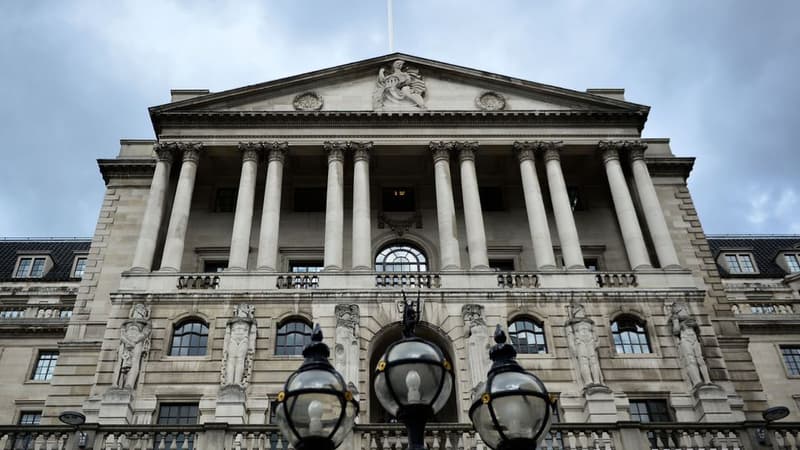Panic wind across the Channel. The Bank of England (BoE) intervened urgently on Wednesday in the face of “real risks to British financial stability” in reaction to a rise in interest rates, while the Treasury maintained its costly budget plan despite harsh criticism of the IMF .
“The Bank will make purchases of long-term government bonds” from Wednesday to “restore normal market conditions,” the BoE said in a statement, adding that this “operation will be fully financed by the Treasury.”
This direct intervention by the central bank comes after several turbulent days for the British market: on Friday, the new government of Liz Truss announced measures to support the economy and very expensive tax cuts.
The 30-year rate at its highest level since 1998
Estimated by economists at between £100bn and £200bn, but whose funding and impact are not yet clear or quantified by the government, they have thrown the markets into disarray. A sign of investor mistrust of British assets, sterling plunged to a record low of $1.0350 on Monday and has risen only slightly since. Yields on public debt, which rise when demand falls, have soared.
“The market movement has sharpened since yesterday and especially affects long-term debt. If this market dysfunction continues or worsens, it would pose a real risk to the financial stability of the United Kingdom”, explained the BoE to justify its intervention.
The 30-year bond rate, hovering around 3.5% at the beginning of last week, jumped to 5.14% in early trading Wednesday, the highest since 1998, signaling a rise in the cost of finance the British debt. A brutal increase that would have seriously weakened certain British pension funds. With the intervention of the BoE, this rate was reduced to 4.47%. Ten-year bonds followed suit, falling to 4.23% after hitting a high since 2008 at 4.59%.
Treasury defends itself
Chancellor of the Exchequer, Kwasi Kwarteng, for his part, “authorized the governor’s request to finance the operation, which will allow financial conditions to remain accessible to households and businesses,” the Treasury soberly added in a press release. separate.
Earlier Wednesday, the Treasury defended its budget plan announced last week, which mixes massive support for energy bills and outright tax cuts, despite abrupt and unusual criticism from the IMF, Moody’s and the political class. “We acted quickly to protect homes and businesses this winter and next winter, following unprecedented increases in energy prices caused” by the war in Ukraine, the Treasury argued.
“We are focused on growing the economy and everyone’s standard of living and the Minister of Finance will publish a medium-term budget plan on November 23” that “will ensure that the debt falls in its share of GDP,” he added.
To correct the shot
The International Monetary Fund (IMF) harshly admonished London during the night from Tuesday to Wednesday in a statement in the form of a snub to the new government. Saying he was “watching the situation in the UK closely”, he called on Downing Street and Chancellor Kwarteng to take action.
“Given the high inflationary pressures in a number of countries, including the UK, we do not recommend any significant unfunded fiscal action, as it is important that fiscal policy does not get in the way of monetary policy,” the IMF said. “The November 23 budget presents an opportunity for the British government (…) to reassess its fiscal measures, particularly those aimed at the highest incomes”, which risk “increasing inequalities”, preaches the IMF.
The rating agency Moody’s is not far behind and says in a note that “widespread tax cuts not financed” by cuts in public spending will otherwise “lead to higher structural deficits, which have little chance of solving growth problems long-term” and could lead to debt. that’s hard to hold.
Asked about the issue, US Finance Minister Janet Yellen said the US Treasury was also closely monitoring the economic situation in London. Britain’s opposition Labor economics leader, Rachel Reeves, called on Downing Street to “urgently explain how the government intends to fix the problems it has created by its reckless decisions.” “Waiting until November is not an option,” she insisted.
Source: BFM TV


